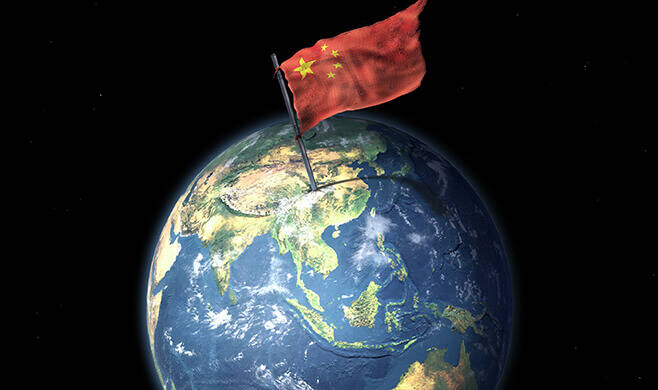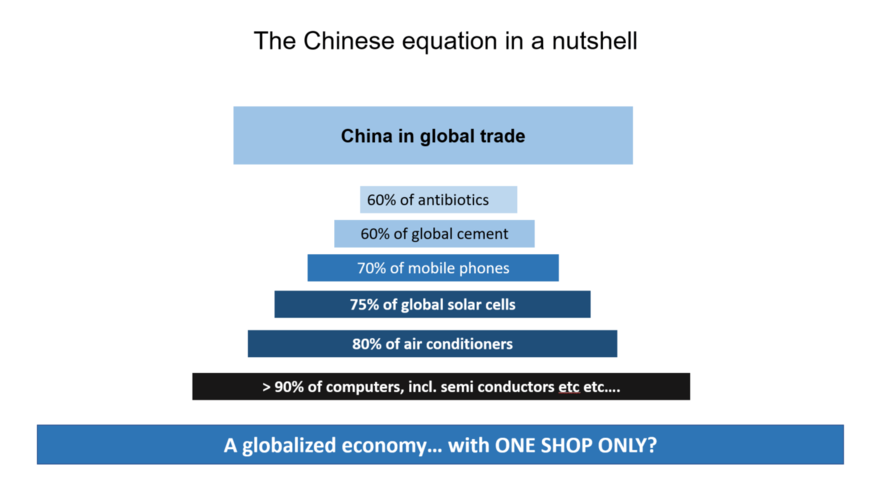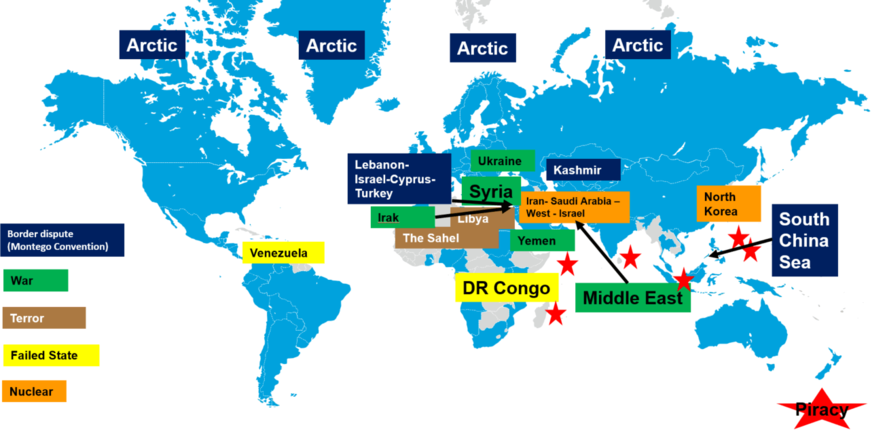Was the world prepared to pandemics?
The outbreak of the Covid-19 pandemic, with its horrific human cost, took the world completely unprepared for such a systemic risk.
For years, the attention of political leaders and corporate executive has focussed on extreme weather hazards and climate change, whilst the risk of pandemic had come off the headlines since 2008.
From this World Economic Forum Report of 2020 (page 2), the least we can say is pandemics were no longer on anyone’s radar screen.
Is globalization to blame for the Coronavirus outbreak?
In the wake of the outbreak, there has been mounting criticism against globalization, which took the blame for the Covid-19 crisis. I would like to point out that the globalized economy we have created over the past 20 years has little to do with globalization.
The globalized economy we have created over the past 20 years has little to do with globalization.
It rather looks like a world with one supplier only, one shop only, China, on the one hand and the rest of the world as buyers on the other hand.
Hence, the outbreak of the Covid-19 pandemic takes place against the backdrop of an extremely imbalanced global trade, but also of extremely fragile economies, with countries like the US, China and a number of EU member states showing debt to GDP ratios often well above 100%.
This happens when a huge pile of extra sovereign debt will land on public finances worldwide in a bid to combat the pandemic, whilst the long-standing conflicts in respect of border claims, competition for resource-rich areas and war against terror have certainly not disappeared and are here to stay.
We may have to live with the virus, so we can hear, for a lot longer. And we may have to live in a global world at a standstill as well, with long-standing industries, including the US oil industry, grinding to a halt. Negative prices seen on the global oil market recently may result in massive
lay-offs but also jeopardize the Energy Transition efforts and the combat against climate change.
What are the possible scenarios post-pandemic?
We have designed three possible scenarios out of this pandemic, looking into the future.
Scenario 1: Back to Business As Usual
Scenario One assumes that the pandemic rapidly subsides and disappears.
The global economy goes back to some form of “Business as Usual”, but the West is laden down with indebtedness and has to submit to a “Globalization with Chinese characteristics” under a sort of Chinese rule.
Scenario 2: De-globalization: Back to 1960s?
Under Scenario Two, the pandemic continues well into 2021. Some large economies are completely destroyed and default. Globalization does not survive. Trade barriers and Tariffs become the new norm. The world turns the clock back to the 1960s: economies enter a cycle of retrenchment under national regulations. This scenario seems less likely given sovereign debt levels.
De-globalization scenarios seem rather unlikely given post-pandemic sovereign debt levels… But a general review of the pre-pandemic globalization and geopolitical order is extremely desirable.
De-globalization scenarios seem rather unlikely given post-pandemic sovereign debt levels… But a general review of the pre-pandemic globalization and geopolitical order is extremely desirable.
Scenario 3: Globalization and geopolitics reviewed
Scenario Three sees the pandemic subside by the end of 2020. Heavily indebted governments manage to weather the storm by monetizing their debt and issuing “war-bonds”. Global inflation is back. The West holds China to account for the crisis. Tensions escalate. Globalization gets significantly reviewed. This scenario seems a likely outcome.










